Donald Trump, Joe Biden: How they will change foreign policy and Australia
Whether it’s a Donald Trump or Joe Biden presidency, it will impact Australia and our region. This is how they will change foreign policy.
World
Don't miss out on the headlines from World. Followed categories will be added to My News.
Last fortnight, Indonesian Defence Minister Prabowo Subianto visited the United States for talks with his counterpart Mark Esper.
There was little to show from the trip but the fact it had happened at all speaks volumes for an apparent shift in President Donald Trump’s foreign policy stance that now seeks more friends to add to his already squared away allies.
The 68-year-old former Special Forces commander Prabowo had effectively been banned from the US since 2012 for alleged human rights and military crimes in East Timor and West Papua and leading a team in Jakarta that attempted to overthrow Suharto.
Yet here he was now, sitting in the Pentagon talking about his armed forces and perceptions of the future of the Asia region.
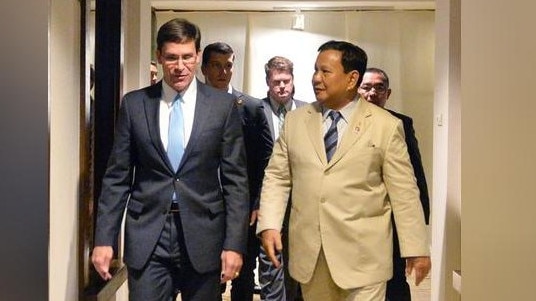
Coming in the midst of a bruising election campaign, the granting of the visa and visit suggests Trump is redefining international relations and foreign policy that has had as many hits as it has misses during his term and befuddled allies and enemies alike.
The US administration’s chaotic Asia Pacific policy that created something of a vacuum as he declared “America First” has allowed nations like Australia and Japan to shine and emerge as their own regional leaders.
But whether Trump wins a second term or Joe Biden gets the people’s presidential seal of approval, a seismic geopolitical tremor can be expected and a reshaping of global treaties and alliances.
In his inauguration address in January 2017, Trump signalled his “America First” approach to foreign policy that would put US interests first and seek to “rebalance the burden sharing” with allies across the board but notably in trade and global policing.
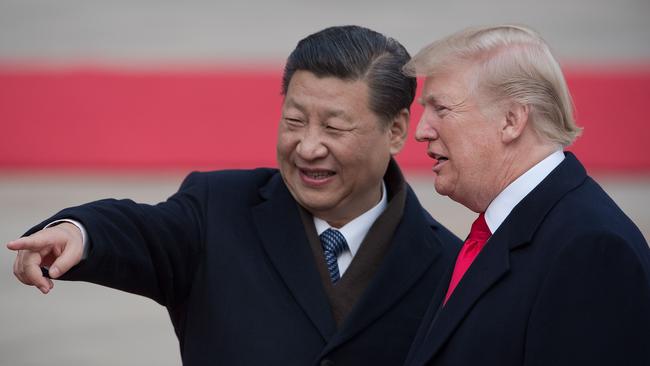
Three days later he ordered his administration to withdraw from the free trade Trans-Pacific Partnership, the 11-nation Asian trade bloc signed in 2016 that Australia and the previous Obama administration had heavily championed as the best way to lower tariffs and help import/export businesses operate.
Another four days later Trump threw his administration into chaos when he made an executive order banning nationals of eight Muslim majority nations from coming to the US for 90 days and freezing refugee intakes from Syria.
The following month came that infamous leaked call between Trump and then Prime Minister Malcolm Turnbull which ended acrimoniously as Trump declared the Obama deal to take up to 1250 refugees stranded in Australia in exchange for Australia taking refugees from El Salvador, Guatemala and Honduras as “dumb” and likely to gift the US the next “Boston bombers”.
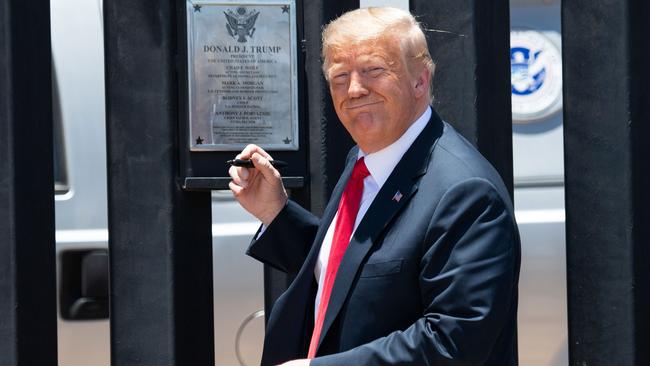
From there he was renegotiating the North American Free Trade Agreement (NAFTA), bombing Syria, demanding NATO contribute more to global peace, announced plans to leave the Paris Agreement climate accord, rolled back ties with Cuba and Iran, broke with decades of policy by recognising Jerusalem as Israel’s capital, put protectionist tariffs on foreign steel and aluminium (with a rare exception for Australia), sparked a trade war with China and Vietnam, withdrew from the UN Human Rights Council, starts building a wall with Mexico, pulls troops out of Syria, Iraq, Afghanistan and Germany, lowers refugee caps to record lows and during the COVID-19 crisis withdraws from the UN World Health Organisation.
These are just the major US foreign policy shifts, and don’t include less formal moves such as meeting with long branded North Korean pariah leader Kim Jong-un, establishing a perceived closeness with Russian leader Vladimir Putin and signalling withdrawing troops from South Korea and various other threats and Twitter musings.
And what of Trump’s infamous no shows at various Pacific region forums and summits like East Asia Summit and ASEAN?
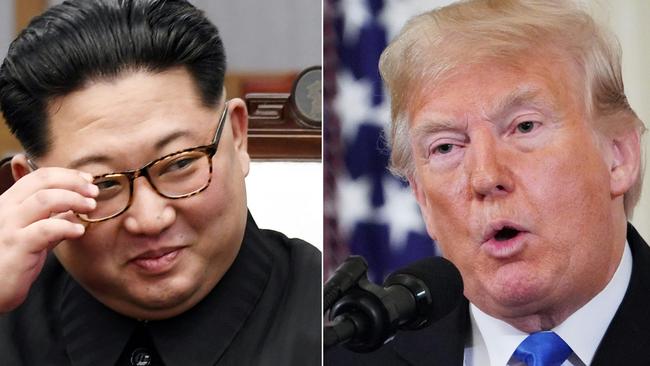
There were some notable achievements though too including negotiating a treaty between Afghanistan and the Taliban, engaging with rogue state North Korea and traditional enemy Russia, achieving a better trade balance with China and significantly, brokered an Arab-Israeli relations normalisation pact.
One of Australia’s leading security analysts UNSW Canberra Emeritus Professor Carl Thayer, who taught at the Royal Military College Duntroon and ADFA for 30 years, wished he could draw so he could produce a cartoon to sum up the situation.
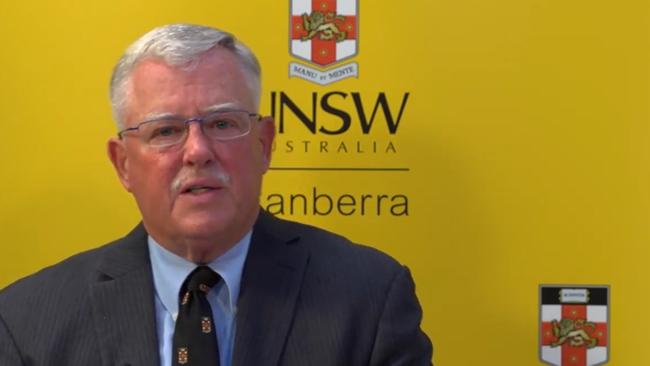
On one end of a tug of war rope, he would sketch is China’s Xi Jinping and the other Scott Morrison, Japan’s Yoshidide Suga and the leaders of six other Asian nations “sweating like hell” to hold on with a disinterested Trump holding too but looking off into the distance.
“The immediate ramifications that we are seeing now particularly under the Morrison government and his defence review is you keep working with the United States where you have to, shut your mouth, grin and bear it and try and influence it on the other hand you work with Japan, you work with the region, identify Indonesia, Vietnam, India and you build those relationships,” American-born Prof Thayer said.
If Trump is re-elected he will now focus on Asia Pacific as China lifts its influence and he will “re-engage” but there will be unpredictable “pivots” where as a Biden administration will be “slow and steady” and more likely to engage in consultative multilateral agreements.
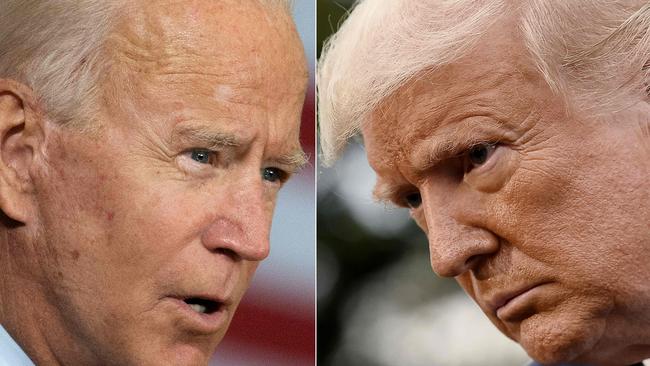
“He (Biden) won’t bring any surprises for Australia, it’s going to be the Obama-era establishment, people with expertise on Asia who are going to be pulled back to the administration. That’s good and bad … he could be too soft on China but I don’t think that’s the case, a lot of that is locked in Democratic veins and in Republican veins, which aren’t Trumpest, it’s to work alliances and partnerships so that will be good for Australia.
“Biden will listen and consult, he has certain things in his DNA but he’s not standing out on foreign policy and for me it’s going to be back to the old normal to a certain extent because we will never be the same, Trump period has left some bumps and repair work that needs to be done, that will be done. He will consult and a more consensus view will come through that we (Australia) will be comfortable with because that’s how our parliamentary process work here.”
Biden was clear on his view of where America is now positioned under Trump.
“We find ourselves in a position where we’re more isolated in the world than we’ve ever been. Our allies are – our go it alone – you know, America first has made America alone,” he said during his televised town hall style Q & A session.
He detailed by region how America’s isolationist policy had made the nation and its allies less secure particularly in the East Asian and Western Pacific region. He said America was once a world leader but the exercise of its power and the power of its example but Trump had shown no-one trusted America to do the right thing.
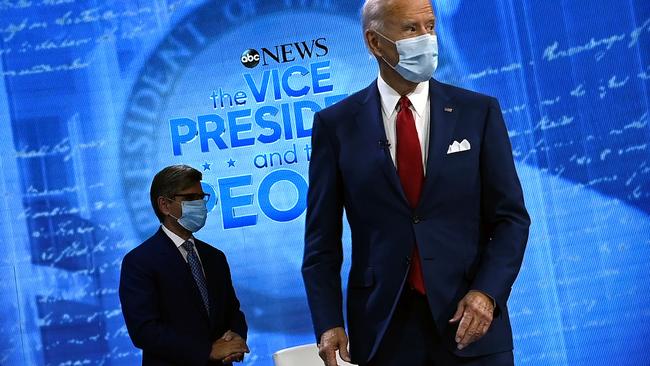
“He’s pulled out of almost every international organisation, he gets laughed at when he goes to the – literally, not figuratively – when he goes to the United Nations,” Biden said. I mean it’s not about the president per se, it’s about the nation and the lack of respect that’s showing to us.”
Simon Tay, chairman of the Singapore Institute of International Affairs, said Trump had inadvertently brought Asian nations together not by design but through his inconsistencies.
“Asians are trying to figure out what else they can do without relying on America too much.”
Australia former deputy head of mission in Jakarta and most recently Australian ambassador to Mexico David Engel said the US olive branch to Prabowo may suggest they now see greater need for relevance and engagement to the region as they look to China’s growing might.
“With the anti-China stuff they have been going on about they may well have seen Indonesia as perspectively a country that could be useful even though Indonesia’s current foreign policy settings are not going to be the sorts of settings the anti-Chinese sentiments that perhaps the Trump administration might like them to be,” he said.
Mr Engel, now a senior analyst with the Australian Strategic Policy Institute, said Canberra should look to urge any incoming Biden administration to at least maintain this element of engagement.
“I would think we would be quite happy that the American administration, whether this one or the next if there is a change, would be pragmatically approaching Indonesia. Indonesia is a very significant country, militarily not very powerful but still a significant country in the region and one that is going to be very important in the context of how the US engages with ASEAN more generally.”
MORE NEWS
Why France has become a hotspot for Islamic extremists
Qld‘s ‘ridiculous’ border move slammed
Europe’s newest SUV lands in Australia
Originally published as Donald Trump, Joe Biden: How they will change foreign policy and Australia




